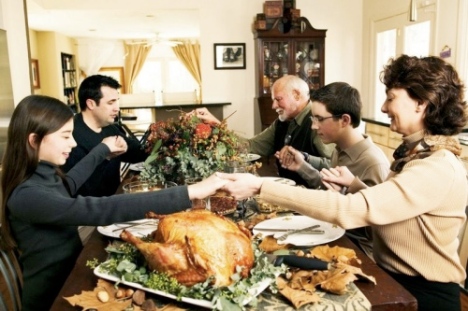
Fox and Friends Topic: Should We Ever Lie to our Children?
I’m currently getting ready to travel down to the Fox News studios in NYC to do a segment on whether parents should ever lie to their children. What do you think?
Here’s my take:
We tell our children not to do it. It’s wrong. It’s dishonest. It’s got bad consequences. And yet, parents often lie to their children. It’s OK, right? After all, our parents did it. Most parents still do.
You keep a special stash of your favorite chocolate in a high up cabinet. You tell your boss you have a doctor’s appointment but you really just want to see your child in her Holiday play. And perhaps you even told them that you didn’t drink alcohol until you were 21.
But if we’re supposed to lead by example, how can parents lie to their children? We look our children right in the eye and tell them that lying is (nearly always) unacceptable.
Moms and Dads lie for all different reasons; from lying for the protection of their children, to keeping details about sex, drugs, smoking, death, rape, and war at a minimum? Is it ethical? Hypocritical? Wise? Necessary?
In order to answer that question, we need to consider:
(1) The reasons for lying
(2) The benefits of telling the truth
(3) The goals
Some things to consider:
- Reasons for lying
- Benefits from telling the truth
- The goals for your child
Let’s go into more detail:
(1) Reasons for lying: Why are you lying? Certainly it has no malicious intent. Are you trying to keep your kids from being prematurely pushed from their comfort zones? That’s a good reason. It’s a good idea to keep in mind the developmental age of our children and tell them what they can process and understand without scaring them unnecessarily.
- Why it can be a bit hypocritical: Well, we ask children to not only tell the truth, but not to omit details of the truth either. Then we go ahead and do a covert cover up, leave out pieces of the story, or just tell them a bold faced lie. Let’s call a spade a spade here.
- Why it can be necessary: When children are asked to listen and accept truths prematurely, it can be very scary and confusing for them. Parents often know best. Yes, some topics are not meant for little ears and others need to be explained very delicately or in broad brush-strokes. If you’re unsure how to handle a touchy situation, talk to your Pediatrician or other helping professional.
- Parents Biggest Mistake: Your child asks you a question and you tell him that he’s too young to talk about such things (i.e. sex, drugs, smoking, etc). Mark my words, he’ll either (1) find out from another source, (2) become so interested in it that he gets into some trouble (forbidden fruit), or (3) he’s already doing it or thinking about doing it and you just missed your opportunity to talk about it with him!!! Don’t make this mistake!!!
(2) Benefits from telling the truth: If you can tell the truth and you think your child can handle it, it’s a good choice. Telling the truth can be very beneficial. It helps to connect and establish trust. They can learn from your mistakes. They can also learn about drugs, sex, war and other touchy topics from a trusted person- you– instead of one of their friends who likely will give them false information. Make yourself their first and most credible resource.
- Be sure to express your opinion: If you choose to tell the truth about your own past experiences and mistakes, be sure to talk to your children about why you believe it was a mistake, what you wish you had done instead, and how you feel about your children participating in such situations. Show the amount of disapproval such a thing deserves such as sex at a young age or drugs.
- Be sure to ask questions: Don’t be the one who does all the talking. Ask your children and teens how they feel about these topics, questions and concerns that they have, why it’s of interest now, and how you can help them the most. Let them tell you their stories and talk to you about their fears, interests, and worries. Listening is one of the best things you can do.
- Caution! Remember to make your explanations age-appropriate. In many cases, it’s best if details of crazy parties, early sexual experiences, drug use, and smoking, were left out. Explaining too much in detail might give the kids the impression that you miss what you used to do or that you feel it was a good idea—even if you don’t believe that at all. Children also don’t need to hear many of the gory details of the current war your brother or niece is helping to fight—but rather, the hard work their doing, their bravery, and the band of brothers and sisters that are working to keep them as safe as possible so that we can all be safe at home. By the same token, when you are divorcing filling your child’s head with information about spousal infidelity, stealing, cheating, and backstabbing is not appropriate—but rather, that while his parents no longer love each other or can live with each other, both parents will always love him, care for him, and it’s in no way his fault. As yourself, how does this information serve my child? And remember to think about why they might be asking—for reassurance, for basic information, for safety, or what?
(3) Goals for Child: Think about your goals for your children. If you shelter them, it may backfire. They feel unprepared or lied to—and this could put in question your credibility. On the other hand, too much information can be confusing and scary. You must really listen to your child and help him without overwhelming him. You must teach him integrity, honesty, and trust, without compromising yours.
In the end, you have to decide what’s right for you and your child. Every child is different– some can handle more detail than others. Would love to hear your opinion– so comment below! Hope you’ll tune in at 8:20am EST, 7:20 Central, 6:20 Mountain, and yes, you early birds– 5:20am Pacific- to Fox News’ Fox and Friends to see us talk about lying, when it may be OK to not tell the full truth and when we must.
copyright: Dr. Robyn Silverman
Clipart credit: Jupiter Images
Filed under: Parenting tips | Tagged: children, Dr. Robyn Silverman, Fox and friends, Fox News, Hone, Honesty, lying, Media, Parenting Expert, Parenting tips | Leave a comment »








 Is your child quitting everything they start? Need a Commitment Overhaul?
Is your child quitting everything they start? Need a Commitment Overhaul?







